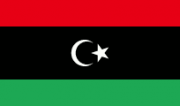.jpg)
UN Support Mission in Libya (UNSMIL) conference, October 19, 2015 (Source: Foreign and Commonwealth Office/Wikimedia Commons)

LIBYA
 Our Concerns
Our Concerns
- Persistent violations of international humanitarian and human rights law, including summary executions, torture, enforced disappearance and secret detention committed against civilians;
- Lack of judicial oversight over militias across the country leading to a climate of lawlessness;
- Absence of investigation and prosecution of perpetrators of war crimes and gross human rights violations.
This year marked the sixth anniversary of Libya’s revolution, and the country remained entrenched in conflict as competing governments and a myriad of militias fought for political and economic power. The deep fractures within Libyan society and between political actors are still patent, constituting serious obstacles to unified state-building and an effective peace process. Foreign powers continued their military involvement in the conflict, reinforcing existing antagonisms in the country.
While several rounds of talks were held this year, those between warring parties have not led to any tangible result, as competing political powers have failed to reach an agreement. The UN–backed Government of National Accord (GNA) in Tripoli is still not recognised by the Tobruk-based government in the east.
On July 26, 2017, after talks held in Paris, GNA Prime Minister Fayez Sarraj and General Khalifa Haftar, who controls most militias in the eastern part of the country, agreed on a countrywide ceasefire and to hold early presidential and parliamentary elections. Ahead of these elections, a process to draft a new constitution was led by Libya’s Constitution Drafting Assembly (CDA) – which sits in the eastern city of Al Bayda – without any public consultation or debate over the text. Although CDA members voted in favour of the adoption of the draft Constitution, this decision was later invalidated by the Al Bayda court due to alleged procedural irregularities. To date, the country has still not established a constitutional framework. Following his first official visit to the country, Ghassan Salama – the newly appointed UN envoy to Libya – declared in November 2017 that the country was not ready to hold elections.
Furthermore, the human rights and humanitarian situation in the country is increasingly concerning. In both its April and September 2017 reports on the UN Support Mission in Libya, the UN Secretary-General (UNSG) stressed that the overall security situation had significantly deteriorated. Violence in the southern part of the country has led to shortages of basic services and provisions as well as the displacement of entire populations, while the prevailing lawlessness in the country is putting civilians at risk of abuse from armed groups and criminal networks.
Lastly, as the country is still one of the main transitory destinations for African migrants going to Europe, the current situation is making migrants more vulnerable to abuses. In April 2017, the International Organisation for Migration documented, through testimonies collected from migrants returning from Libya, forced labour with the complicity of human trafficking networks. On November 29, 2017, during an emergency session on human trafficking in Libya, the UNSC strongly condemned slave trading and urged the authorities to take action in order to end the practice.

Severe and persistent violations of international humanitarian and human rights law
The inability and failure of the different authorities to maintain security and uphold basic rights and freedoms created a breeding ground for severe violations of international humanitarian law and human rights. In addition to the violations perpetrated by all parties to the conflict, ordinary crime has become endemic due to the absence of strong judicial institutions to prevent and punish abuses.
In its August 2017 report to the UN Security Council, the UNSG expressed serious concern over violations to the right to life. According to UN figures, between December 2016 and July 2017, there were 192 civilian casualties including 90 deaths and 102 injuries caused by direct gunfire, airstrikes, explosive remnants of war and improvised explosive devices.
“The inability and failure of the different authorities to maintain security and uphold basic rights and freedoms created a breeding ground for severe violations of international humanitarian law and human rights.”
Furthermore, the UNSG highlighted in his report that arbitrary detention remains widespread across the country, both in official prisons and detention centres controlled by armed groups. He added that little progress has been made to ensure that individuals are not detained outside the protection of the law and to bring arrested individuals before a judicial authority. Furthermore, he highlighted that armed groups on all sides of the conflict were responsible for numerous abuses, including hostage taking, unlawful killings, torture and enforced disappearances, which were also committed against civilians. Alkarama has also received several testimonies indicating a pattern of civilians being targeted on the basis of family or tribal identity, as well as political affiliations or opinions.
Cases documented by Alkarama in 2017 illustrate such human rights violations, including by forces which pledged allegiance to the GNA, particularly the Special Deterrence Forces (RADA forces) and affiliated militias. Despite the fact that the RADA forces fall under the GNA’s formal authority, the latter exercises little to no oversight. As a result, numerous abuses, including abductions, secret detentions and torture, are committed in complete impunity.
For example, on May 30, 2017, Tarek Milad Mohamed – a human rights defender and former minister in the Tripoli-based government – was abducted by members of the intervention police of Abu Salim, affiliated to the GNA. The case of Mohamed Al Rajili Ghoma Abdul Rahman, a doctor in information and technology and former Deputy Minister for the Affairs of Families of Martyrs and of Missing Persons follows a similar pattern. Abdul Rahman was abducted on April 25, 2017 by members of the Katibat Al Nasr militia affiliated with the GNA Ministry of Interior. Alkarama also documented the case of Imam Abdulrazaq Moftah Ali Mshireb, who was abducted in front of his house in Tripoli on September 10, 2017 by the RADA forces, and released in early December. To date, the GNA has failed to answer and clarify these cases of enforced disappearances with the Working Group on Enforced or Involuntary Disappearances.

Lack of accountability for perpetrators of human rights violations
The pervasive climate of lawlessness and the inability of the UN-backed authorities and others to enforce the rule of law are directly contributing to a lack of accountability for perpetrators of abuses. The existence of multiple parallel security and political institutions backed by a myriad of militias with shifting allegiances to various political authorities renders the identification and prosecution of perpetrators of human rights violations and their superiors all the more difficult. The absence of an independent and functioning judiciary within each political authority, alongside their inability to exercise effective control over militias has created an alarming lack of accountability for perpetrators of these violations.
“The pervasive climate of lawlessness and the inability of the UN-backed authorities and others to enforce the rule of law are directly contributing to a lack of accountability for perpetrators of abuses.”
In its April 2017 report, the UNSG stated that he was “deeply alarmed” by the lack of progress in achieving accountability for serious violations of international human rights and humanitarian law. A striking example of such a lack of accountability is the response to the eastern government police forces’ discovery on October 26, 2017 of the bodies of 36 victims of extrajudicial executions in Al Abya, a city under the control of militias controlled by General Khalifa Haftar. Though the latter has pledged to investigate the killings, to date, no steps have been taken to this end.
This pervasive climate of impunity is all the more concerning considering that the crimes committed may amount to war crimes and crimes against humanity. Since the UNSC referred the situation in Libya to the International Criminal Court (ICC) in 2011, such crimes would fall under the jurisdiction of the ICC. However, to date, no suspect has been successfully brought before the ICC despite the issuance of several arrest warrants. On November 8, 2017, the ICC Chief Prosecutor, Fatou Bensouda, addressed the UNSC concerning two more arrests warrants issued by the ICC’s prosecution against Libyan nationals involved in crimes falling under the ICC’s jurisdiction, and raising challenges faced in ensuring accountability of perpetrators. However, Libya’s representative explained that delays in investigations and prosecutions of perpetrators as well as the authorities’ inability to arrest individuals subject to ICC arrest warrants were due to the security situation.
2017 marked the sixth anniversary of Libya’s revolution, and the country remained entrenched in conflict as competing governments and myriad militias fought for political and economic power. The deep fractures within Libyan society and between political actors are still patent, constituting serious obstacles to unified state-building and an effective peace process. Foreign powers continued their military involvement in the conflict, reinforcing existing antagonisms in the country.
While several rounds of talks were held this year, those between warring parties have not led to any tangible result, as competing political powers have failed to reach an agreement. The UN–backed Government of National Accord (GNA) in Tripoli is still not recognised by the Tobruk-based government in the east.

Arbitrary and secret detentions in Mitiga military airbase
In 2017, Alkarama continued to receive credible information over the use of the Mitiga Military Airbase as a secret detention facility. The airbase is home to one of the largest detention facilities in Tripoli, and is controlled by the RADA Special Deterrence Force under the authority of the Ministry of Interior of the GNA. Allegations of various abuses were corroborated by testimonies of families of victims of abductions by the RADA forces and affiliated militias, on behalf of whom Alkarama seized the WGEID as well as the UN Support Mission in Libya (UNSMIL).
Testimonies have shown that arrests were carried out by armed men affiliated with the RADA forces, who were then transferring arrestees to the Mitiga airbase where they were detained in secret. Accounts of torture and ill-treatment, appalling conditions of detention and the denial of medical care were also reported by families of victims. While it remains difficult to know how many individuals are detained in the airbase due to the absence of judicial oversight and the registering of prisoners, Alkarama has received information according to which more than 2,000 individuals – including children – are currently detained in appalling conditions. Sources also reported that at least 20 persons were executed in secret.
In its August 2017 report to the UNSC, the UNSG stated that although UNSMIL was able to visit several detention facilities in the country – without, however, being allowed to speak privately to detainees – the UN mission was unable to visit the Mitiga detention facility in Tripoli despite its repeated requests. He also expressed concerns over reports of torture, sexual and gender-based violence, poor prison conditions, medical neglect and the denial of family visits for detainees in the facility.